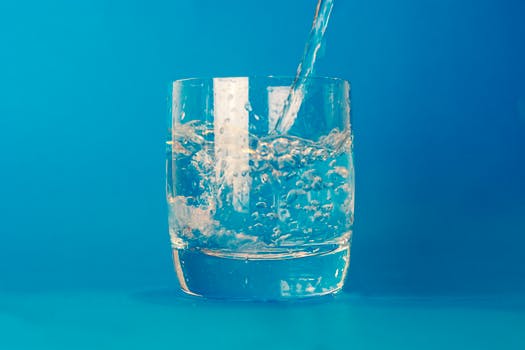Healthy Nurse, Healthy Nation™ Blog - Stay Hydrated On The Job
Published
We ensure our patients drink enough fluids, but we don’t do the same for ourselves. Cardiac Clinical Nurse Specialist Nurse Alice Benjamin explains how to stay hydrated at work.

As nurses, we know staying hydrated plays a key role in our overall health and well-being. “Water is essential for key bodily functions. When you’re dehydrated, it's like having a car with no gas. If you don't have water, you're not going to go anywhere!” says Nurse Alice Benjamin, a Cardiac Clinical Nurse Specialist with twenty years of nursing experience.
Dehydration can lead to:
- Feeling sluggish or lethargic
- An inability to concentrate
- Headaches
- Constipation
- Dizziness
- Increased energy
- Feelings of fullness, which may prevent overeating
- Clearer skin
- Healthy bowel movements
- Positive effects on your mood
“The general rule of thumb is to drink eight 8-ounce glasses of water per day, but the optimal amount varies depending on a height and weight, if they have a medical condition, the type of activity they are doing, and even the climate they work in,” says Nurse Alice. Focus on staying hydrated by drinking water often instead of stressing about how many ounces you’re sipping.
If you’re thirsty, chances are you’re already dehydrated. Stave off thirst by drinking water even when you’re not parched.
Looking at your urine after you go to the bathroom is an easy way to see if you’re getting dehydrated. Healthy urine is clear with a tinge of yellow. Urine that is yellow, chardonnay-colored, or orange may signal dehydration.
Drink During Your Shift
Nurse Alice admits that it can be difficult to drink water while you work. Many hospitals prevent nurses from carrying a water bottle in patient care areas so the bottle doesn’t become contaminated with germs. She says, “If a nurse works for a 12-hour shift, he or she will likely get two breaks and a lunch. Drinking water only during those three times isn’t sufficient to stay hydrated.”
Here are her strategies for getting in more H2O on the job:
Time it out. “Just as we time medications, treatments, and therapies for our patients, we need to keep track of when to drink water,” says Nurse Alice. “In nursing school, it was drilled into our heads to turn our patients every two hours. As nurses, we need to drink water every two hours!” Walk to the break room and take a few sips whenever your alarm goes off.
Know what you like. Some people like room temperature water, while others like it cold and refreshing. Knowing how you prefer water may help you drink more.
Dress it up. If plain water isn’t doing it for you, try the sparkling variety or put frozen fruit, herbs, or veggie slices into your glass for a spa-like treat. The pretty aesthetic may make you want to drink up, too. You may also want to try infused water or fruit-flavored water (look for the kind without additives). The slight flavor may make it more palatable.
Chew ice. “We often have to limit the amount of water certain patients can have,” says Nurse Alice. “In those cases, we may let our patients chew on a few ice chips. Who says you can’t do the same?”
Eat fresh fruit. Water-rich fruit like watermelon, cantaloupe, berries, grapes, and honeydew can also help with hydration. Along the same lines, limit salty, fried foods that can lead to dehydration (or drink an extra glass of water with those meals).
Don’t forget electrolytes. If you’re working in a fast-paced environment, especially in hot weather, make sure you’re replenishing electrolytes (chemicals that help with important bodily functions), too. Appropriate hydration and good nutrition are the best way to do this.
What About the Bathroom?
“Nurses are so busy with their patients, they don't have time to pee,” says Nurse Alice. “If you don't have time to go to the bathroom or drink water, you don't have time for yourself. That's a culture and a mindset we need to shift. How can we expect our patients to do these things if we're not doing them ourselves?”
Do you have any tricks that help you drink more water during the day? Share your tips in our discussion!
Find this helpful? Use the buttons to the left to share this post on Facebook, Twitter, or Instagram. Tag us with #HealthyNurse!
Sources:
Pross, N., Demazières, A., Girard, N., Barnouin, R., Metzger, et al. (2014). Effects of Changes in Water Intake on Mood of High and Low Drinkers. Retrieved July 11, 2017.
George, N. (2016, February 01). 6 Unusual Signs of Dehydration. Retrieved July 11, 2017.
Healthline. (Medically reviewed 2019, May 13 ). 25 Foods that Replace Electrolytes. Retrieved December 12, 2022.
Updated 12/12/22

Have you joined the Healthy Nurse, Healthy Nation (HNHN) Grand Challenge yet? Join us today!
Blog Nutrition
08/11/2017 1:24pm CDT


Post a Comment or Question